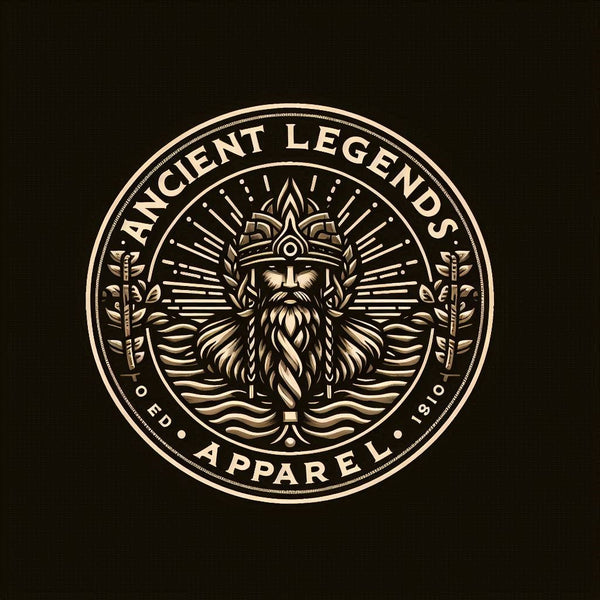Symbolism Behind Warrior Cultures
Karl FShare
INTRODUCTION
Delving into the ethereal realms of ancient folklore, mythology, and past civilizations reveals a ubiquitous theme captivating human imagination – the warrior. From the brave Spartan to the valiant Viking, the fearless Samurai to the bold Maori, these warrior cultures have fascinated us with their brevity, chivalry, and might. The warrior stands as a symbol of courage and honor, protector of the realms, conqueror of unknown lands, and defender of the nation. Transcending time and space, the archetype of the warrior has evolved, yet its essence remains rooted in ancient traditions. The mythos of the warrior illuminates the philosophical, cultural, and ideological contexts of ancient civilizations, thus unraveling an enigma that reverberates in our collective consciousness even today.
ORIGIN AND CULTURAL CONTEXT
Delving into the cradle of Greek civilization, we find one of the most acclaimed warrior societies—the Spartans. Nestled in the heart of Laconia, Sparta epitomizes the warrior tradition with its austere lifestyle, rigorous military training program, and unwavering martial ethos. Beneath this ethos, however, are the gods Ares, Athena, and Apollo, who instilled in Spartans values of courage, wisdom, and physical perfection, respectively. Interweaving mythology and statecraft, Sparta fostered an ideal warrior culture that exuded primitive vigor and strategic finesse, earning it an indelible place in history.
THE LEGEND OR STORY
Sparta's legendary tales of heroism are inextricably tied to its iconic warriors. Perhaps the most told is the last stand of the Spartans, led by King Leonidas, against the Persian Empire at the Battle of Thermopylae in 480 BCE. Outnumbered yet undeterred, the 300 Spartan warriors fought fearlessly, embodying the Spartan maxim, "Come back with your shield, or on it." This legendary battle was not just a historical event but a sanguinary stage where the Spartan moral code unfolded studding the annals of world history with the epitome of valor.
INTERPRETATIONS AND SYMBOLISM
Spartan warriors embody timeless symbols of courage, valor, sacrifice, and camaraderie, emblematic of their warrior culture. The shield was more than a defense weapon; it symbolized communal solidarity, and to return without it indicated desertion—a shameful act warranting punitive death or exile. The lambda, the Greek letter 'Λ,' emblazoned on their shields, symbolized Laconia, their homeland, serving as a poignant reminder of their duty to protect their country and uphold their cultural values.
COMPARISONS IN OTHER CULTURES
Viking and samurai cultures, despite vast geographical separation, share striking parallels with Sparta's warrior culture. The Norse god Odin, celebrated as the god of war and wisdom, mirrors the Greek god Ares and Athena's attributes, respectively. Vikings, like Spartans, subscribe to a warrior code emphasizing bravery, honor, and loyalty. Similarly, samurais, influenced by the Bushido code, resonate with Spartan virtues of courage, rectitude, honor, and loyalty. The symbolism borne by Spartan shields finds reflection in Viking runes and samurai Mon, further illustrating a global warrior archetype coalescing cultures across continents.
MODERN REFERENCES AND POP CULTURE
Modern media has effectively resurrected ancient warrior cultures, with Spartan warriors making iconic appearances. The massive success of the graphic novel-turned-film "300" catapulted Spartan warriors into the limelight, showcasing their indomitable spirit, fierce loyalty, and military prowess. Recent TV series like "Vikings" and "Samurai Champloo" have further provided a robust platform to explore ancient Viking and samurai cultures. Meanwhile, video games like "Assassin’s Creed Odyssey” and “God of War”prove that ancient warrior narratives remain as engrossing and vital as ever to the modern imagination.
LEGACY AND LASTING MYSTERIES
The symbolism embedded in ancient warrior cultures has found a permanent home in our collective consciousness. They metaphorically elucidate basic human values of courage, loyalty, determination, protection, and their survival. Greek, Norse, and Japanese traditions have found ways to immortalize these warriors, their ethos, and their bravery, creating a legacy that reverberates through history. Yet, the enigma behind the unwavering spirit of a warrior remains. What fuels their relentless courage? How does their very essence withstand the test of time, resurfacing with each generation? The mystery continues to linger and enthrall, as the tale of the warrior, a mirror of humanity's enduring spirit, unfolds across the canvas of time.
